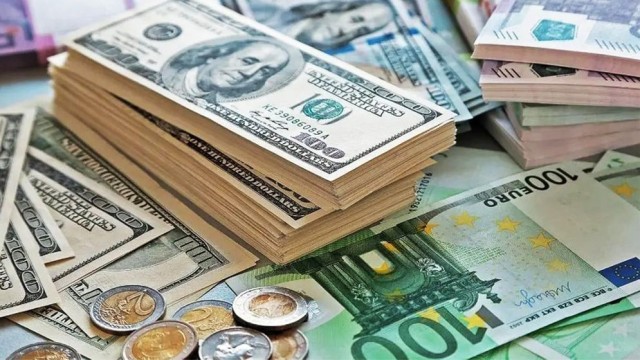The US has had surprising job growth, GDP growth that above forecasts, and consumer spending even as interest rates rose, thereby preventing the much-feared recession in 2023.
Although interest rates have reached their highest point in over 20 years, which is often followed by increased unemployment and a decline in spending, this time around it has not happened.
Why is this surprising?
The hiring, salary increase, and low unemployment rate have supported consumers' appetite to spend.
The predicament has its roots in the unrest that companies went through during COVID-19, when managers found it difficult to find, develop, and keep talent.
Even in the face of a potential economic downturn, this has caused them to reconsider their decision to eliminate jobs, according to Gregory Daco, chief economist at EY.
Rather, they advocated for hiring fewer people."Non-cyclical government, healthcare, and education propelled much of employment growth," according to Kathy Bostjancic, chief economist at Nationwide, even as hiring in the private sector dropped.
According to Julia Pollak, chief economist at ZipRecruiter, Americans are gaining jobs and earning raises, and yearly real pay growth has been positive since May 2023.
"Declining inflation and rising purchasing power are fueling strong consumer spending," she stated to AFP.
Pollak stated that despite a steady decline from a peak in November 2021, the quantity of internet job postings is still historically high.
However, she pointed out that the employment market is slowing down, with ZipRecruiter statistics showing that applications for each job ad increased by 30% year over year in January.
"As a result, we've seen more resilience in the labor market," Daco stated to AFP.
"A unique facet of this business cycle is that the value of talent has shifted," he stated.A number of policies, including as the $1.9 trillion American Rescue Plan and the $2.2 trillion CARES Act that were passed by the government in 2020 and 2020, respectively, to provide financial assistance for the recovery from the Covid-19 epidemic, are also contributing factors.
The payments were "effective in providing inflationary pressures," according to Allianz Trade North America senior economist Dan North.
Soon after, in 2022, President Joe Biden unveiled his historic climate action plan, the Inflation Reduction Act, and signed the Bipartisan Infrastructure Law in 2021, authorizing $1.2 trillion in expenditures on infrastructure and transportation.
As rate rises have been used by the Federal Reserve to try and slow the economy and reduce inflation, North claimed that "fiscal policy has been doing exactly the opposite."
"Government subsidies for electric vehicle, microchip, and infrastructure investments are boosting business investment at a time when high interest rates might otherwise have caused it to plummet," Pollak added.
About 30 percent of GDP growth last year came from the government sector, which represents some 14 percent of the economy, said Daco.Because of the period of significantly lower rates in previous years, the economy also performed well despite the dramatic rate rises.
The standard lending rate was nearly zero in 2020 until the Fed began to raise it once again in March 2022.
According to North, this "allowed corporations to issue debt at very low interest rates," and a lot of them did.
"Now in aggregate, corporations are paying the lowest interest payments on record," he stated.
Similar to this, many cushioned the impact of Fed rate hikes by locking in low mortgage rates. The effects of rate increases on the economy take time, according to economists.
North anticipates that it may take six quarters, or 1.5 years, for the entire impact to materialize in the form of a slowdown after the most recent rise was declared in July.
However, the forecast for this year is still promising since interest rate reduction are expected given the decline in inflation, which usually encourages economic activity.
According to a study conducted this month by the National Association for Business Economics, just 25% of participants think there will be a recession in 2024.
End//voice7news.tv































Comment: